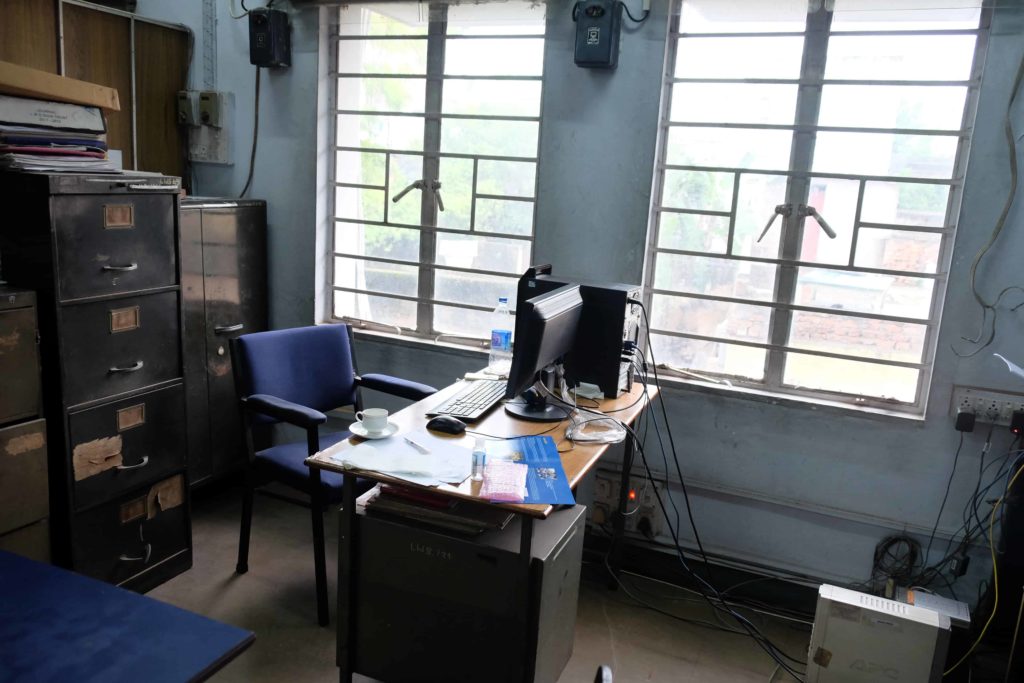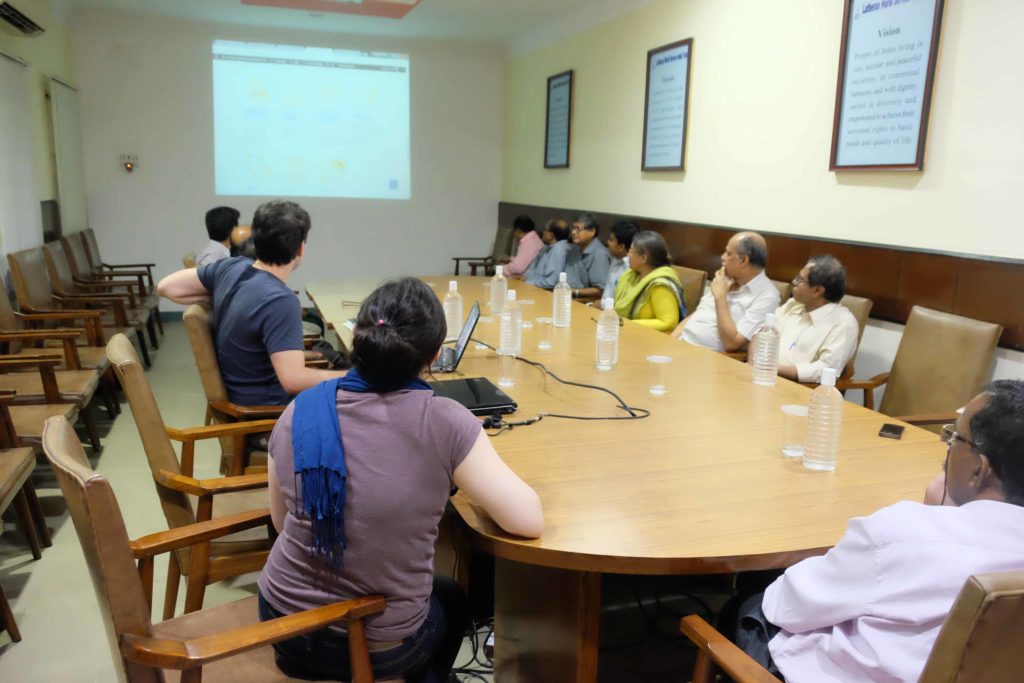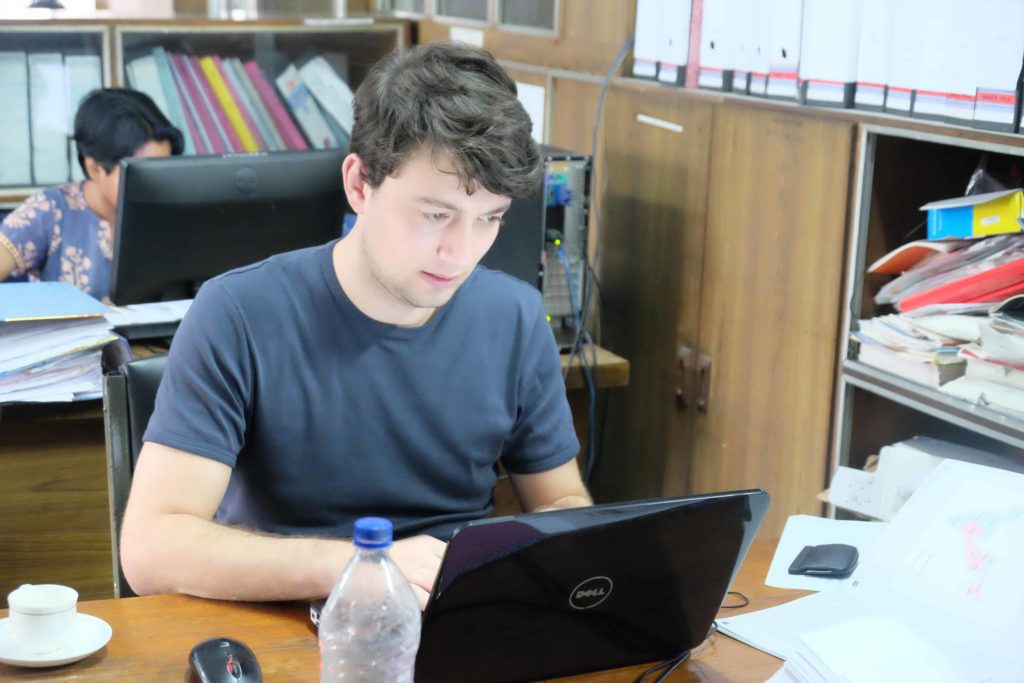A couple of years ago, I was still working at a Dutch web agency. Even before, I lived for a couple of months in India for a study project. At that time, the people and the country gained a special place in my heart. So I always wanted to return and the opportunity came.
Together with my wife, who happens to be a designer as well (phew), I flew back to India to meet some friends and, surprisingly, volunteer at an NGO. While it’s already some time ago, I feel it is time to share some of the things that I learned volunteering over there.
What we did there
We contacted one of the NGOs where a friend of mine was working and they had the desire for a new website. Coincidentally, this was just matching our capabilities. In one week, we planned to analyze the existing website, manage the creation of new content, make a redesign, develop the website and train some employees in using the website. Sounds pretty feasible, isn’t it? There are 168 hours in one week after all…
But enough introduction. Let’s talk about some of the major points
1. Don’t Underestimate Culture Differences in Communication
One of the first things we had to do is gain the trust from the leadership in our capabilities of the creation of the new website and get acquainted with the responsible employees.
Most of these employees spoke E
The previous time that I was in India, I found it quite exciting to connect with other Indian people. But in many almost all occasions, this was small or social talk. To get a technical topic across and get an impression of full understanding proved to be a lot harder.
Now the NGO had an existing party to manage their websites and internet services, and I required some information for them to get the new website working. Now in my context, I would have sent an e-mail or perhaps called because it was a matter that could be solved in 5 minutes.
Even after stressing that a call would have been sufficient, a separate meeting was set-up with a representative of this company. Now, in my opinion, I had two pretty simple technological questions.
But in Europe, and especially in the Netherlands, you can often get straight to the point. In India, communication is often indirect, more subtle and polite. So while I asked those questions, it was very hard to get understanding for in my opinion two quite simple questions (for an internet company at least).
And that’s when I understood the importance of a meeting in this culture. You get acquainted first, handle the required formalities and get socially involved, and along the way fire your questions. But not straight away.
2. Technology Standards can be quite different
To me, India is a paradox of technologies. You see decade old trains filled with people using modern smartphones. You can see classic archives filled with dozen of papers and files next to modern computers. It almost has some sense of beauty.

So in the meeting that I talked about before, I found out that sometimes technology standards are different. Just let me explain a couple of things first. If you want a website on the internet, you need hosting. Hosting is basically the renting of a specific space on a computer that is connected to the internet (a server). In this space, you can put your website. Subsequently, if you connect a domain (a domain is an address, such as michieltramper.com) to it, this website can be accessed.
Now I used WordPress for the new website of this NGO. WordPress is a piece of software that runs over 25% of the world’s websites and is supported by many hosting companies. Unfortunately, the NGO’s partner for hosting did not have the technological capabilities to host a WordPress website. This was kind of a surprise because it is a piece of technology so widely used that almost everyone supports it.
Now I still believe this is an exception and there are many Indian Hosting companies supporting WordPress. In the end, we used the services of one of those companies.
3. Respect Hierarchy. It may even bring you into funny situations
You may be aware of the cultural dimensions theory from Geert Hofstede. It explains that national cultures may be explained by six dimensions. And one of these dimensions is called Power Distance, which is all about hierarchy.
This dimension can be explained as the level of acceptance for power differences, or inequality, in a society. Cultures with a high power distance have more respect for hierarchy.
According to this theory, India has a relatively high power distance. In other words, the hierarchy is respected in India. I found this theory is particularly useful in adjusting your communication and attitude for better understanding. But it created a situation I could not foresee.

Now I had one friend working at the NGO. During the final presentation of the website, she was nagging me to sing a Hindi song. I knew a few lines from this song from the Bodyguard Movie, called Teri Meri. Considering the presentation an official moment, I did not yield to her requests.
But then the director of the NGO noticed and said the dreaded lines: “Please
4. Volunteering from Your Skillset is Great
This is a remarkable point,
But in many cases, NGOs can be helped with skills that are within your professional capabilities. I found this particularly pleasing in this case. You are working in the flow of your strengths and helping a charitable cause at the same time. What else do you want?
5. Finish Before Leaving
But the major point that I learned is that you will want to finish what you started before leaving. I can conclude that this project failed and our efforts were in vain. It sounds a little harsh, but it was true. Do you want to know why?
We finished the website up to 98%. We had to finish one page and subsequently put the website live. In just one week, we had completely revamped, redesigned and redeveloped the existing website. Almost. And we failed because of that.

So we prepared for the final steps abroad, but communications with the responsible agency were
It was a hard learning point – do not leave before what you started is finished. Or at least make sure everything and everyone responsible is in place to get it finished. Now it may go well in many cases. But in this case, the distance was too great. On the other hand, you may rightfully say that we should have taken more time. Oh yes, certainly…
Don’t forget Indian food!
But let’s not end this writing with complete despair. An article about India is not complete without the mentioning of Indian food, which seems to have originated from heaven. If you ever consider travelling to India: their food is enough reason to go there. Only the remembrance of some of the tastes there evokes instant hunger. And you know what, you can attempt the creation of these dishes at home. Take for example this recipe for butter chicken. Enjoy!